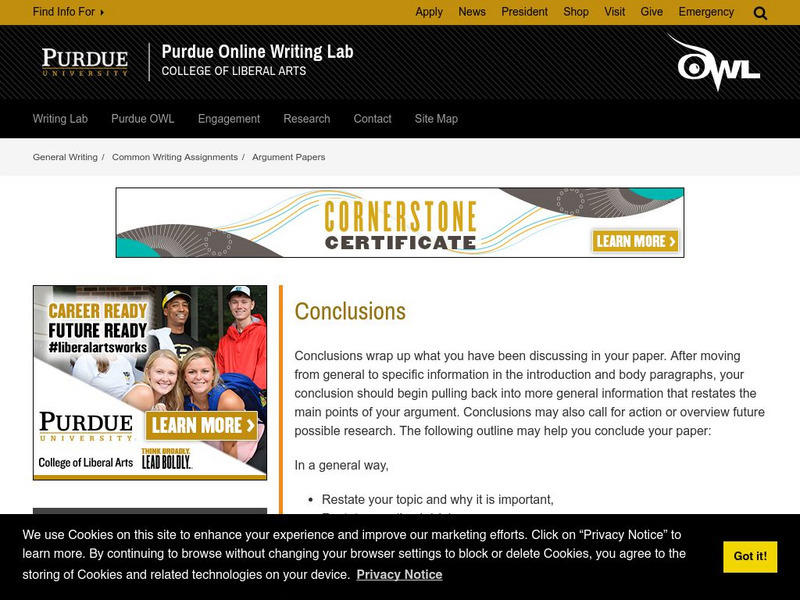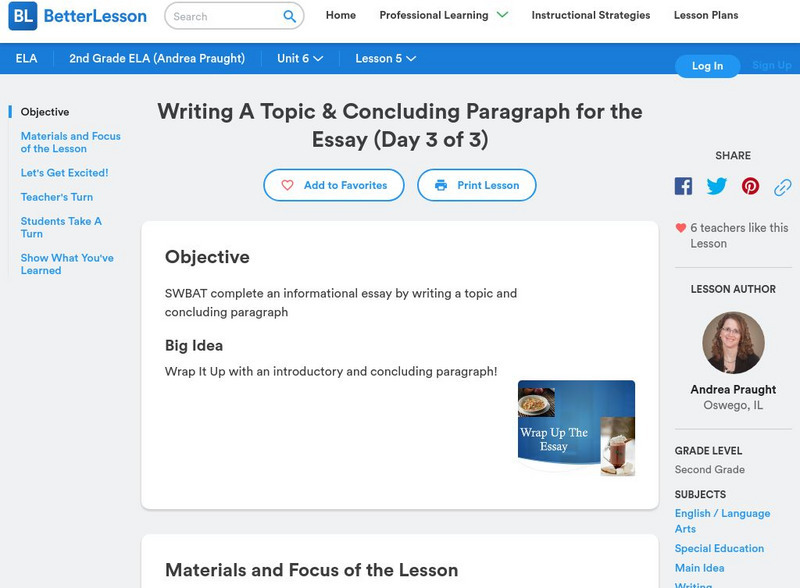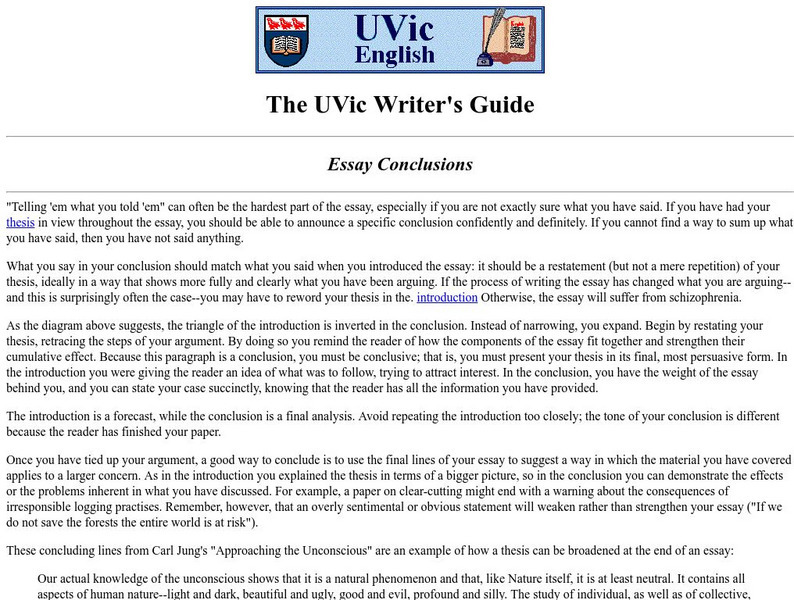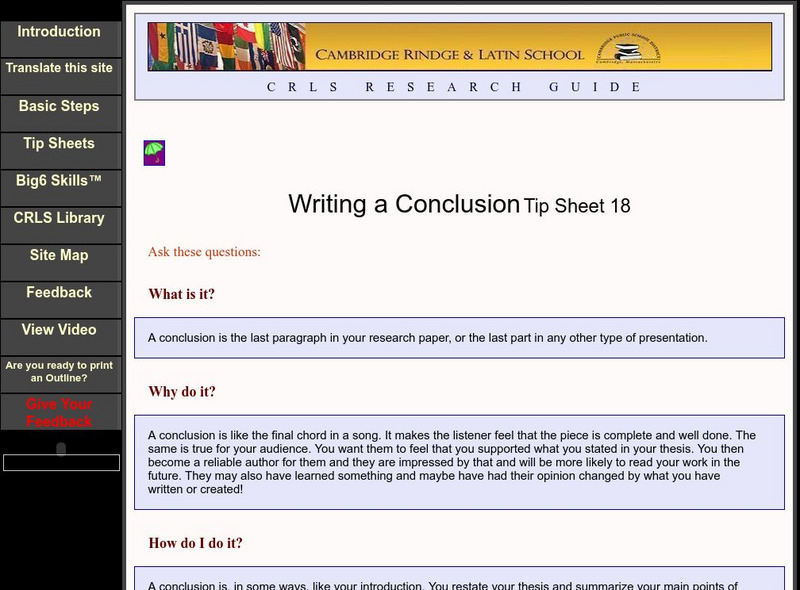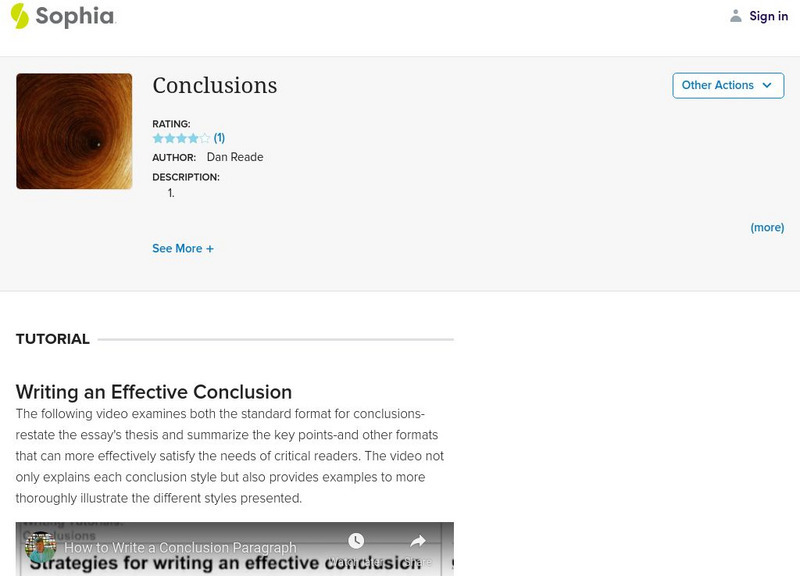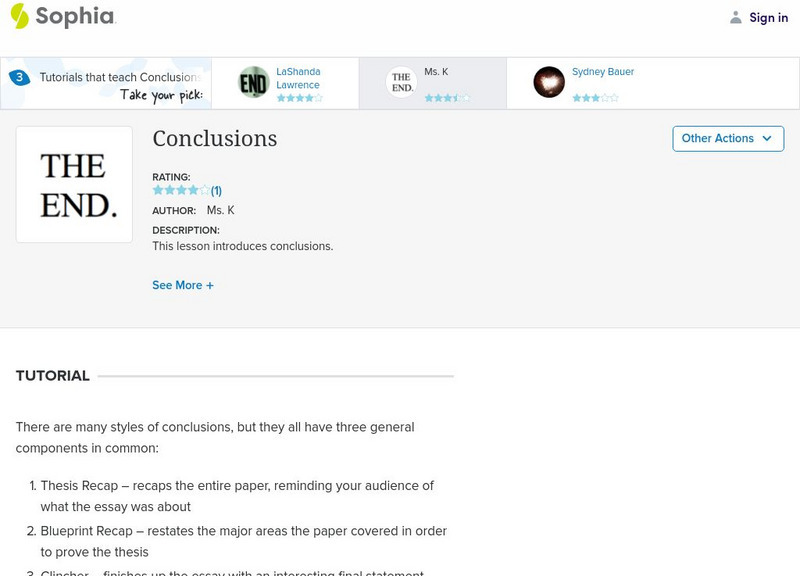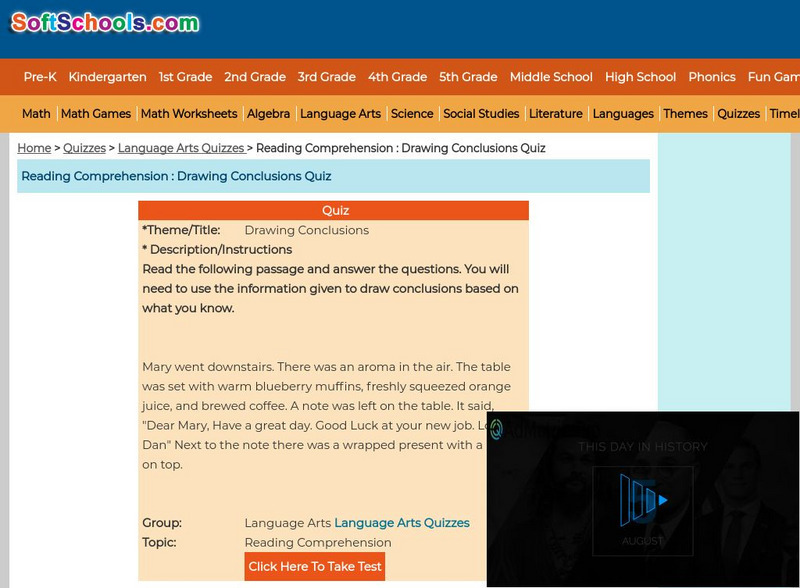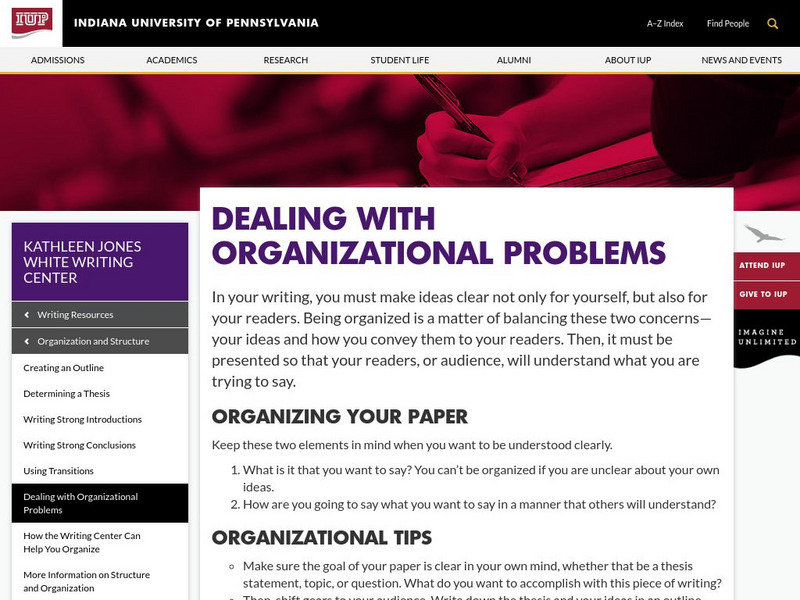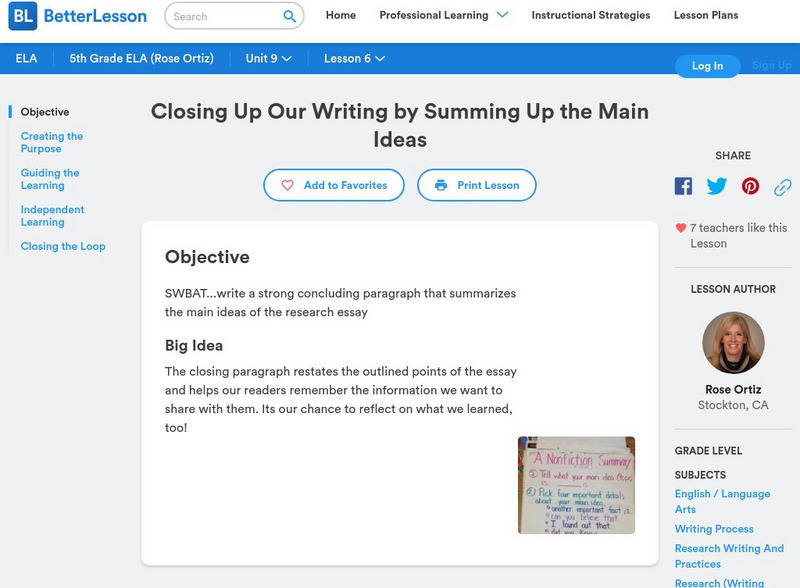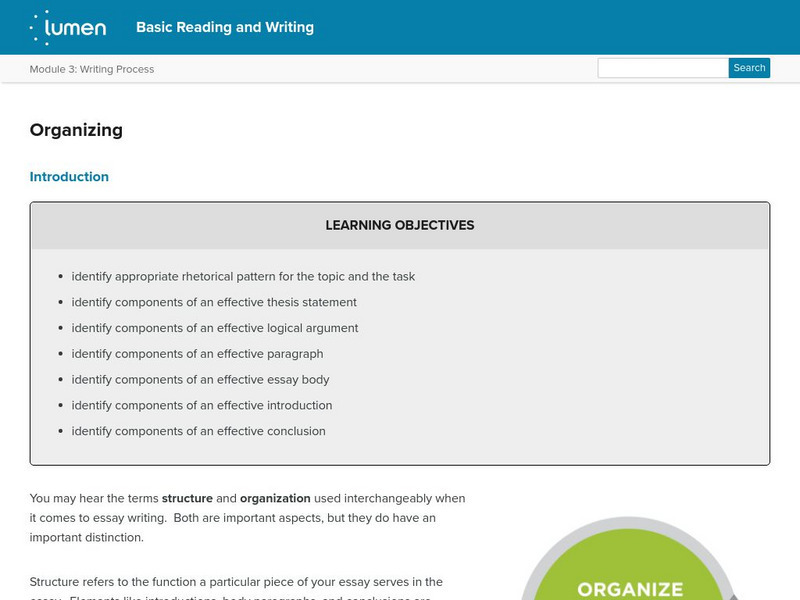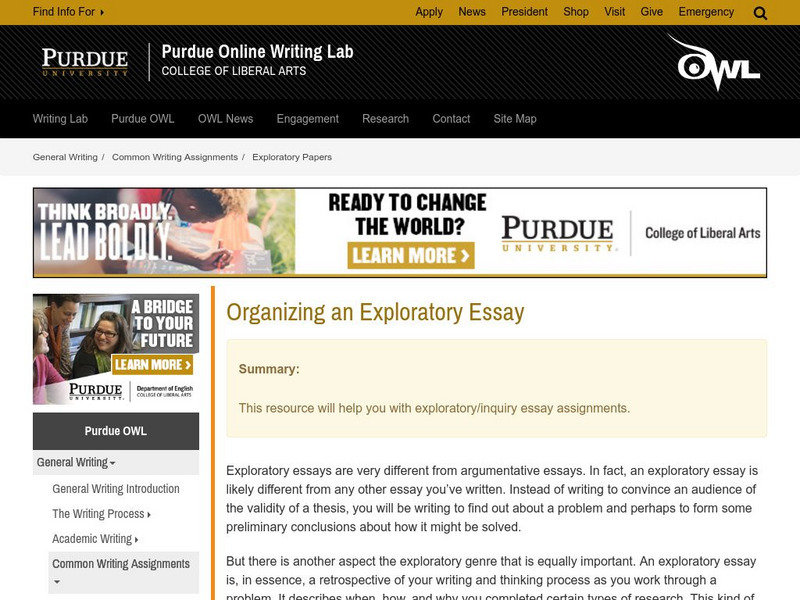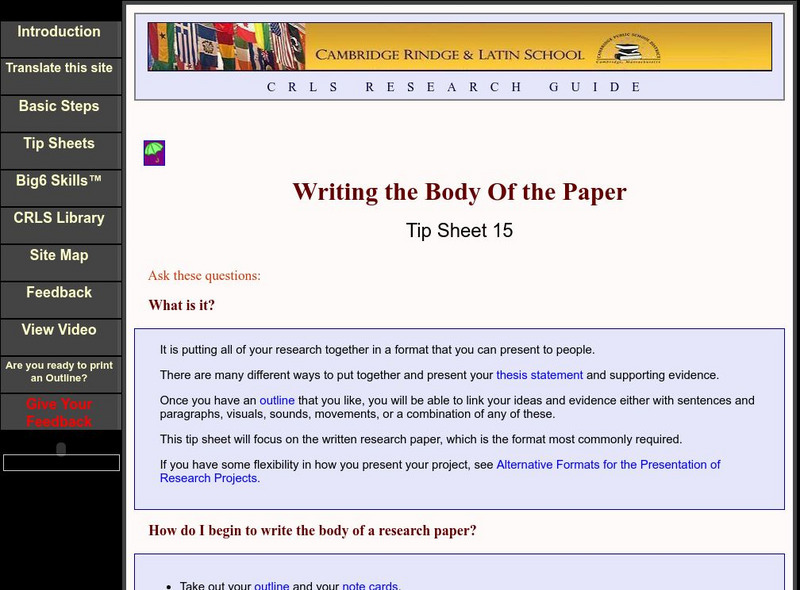Hi, what do you want to do?
Curated OER
The Class Garden Essay
Fifth graders use a class garden as inspiration for a specific writing assignment. They conduct research into different types of flowers in photo images taken with a digital camera. Students write a creative essay and draw a picture to...
Curated OER
Runaways Past and Present
Tenth graders use video and the Internet to compare runaway teenagers of the 1930s with runaways today. The lesson uses the integration of technology in order to build skills and conduct research.
Curated OER
Sail Through History: American West and History of Medicine
In these reading strategies worksheets, students learn reading hints, tips and the S.A.I.L. reading strategy. Students use the methods to learn about American history and the history of medicine.
Curated OER
View Tube Triangulation
Students investigate a particular object then calculate to find the class average and standard deviation. In this measuring distance lesson students list their calculations on a piece of paper.
Pennsylvania Department of Education
Giving Things a Name
Students label images seen on an interactive website. In this early writing lesson, students do their best to write the name of the object seen on the screen.
Online Writing Lab at Purdue University
Purdue University Owl: Conclusions
This Purdue University OWL (Online Writing Lab) provides information related to writing a research paper. This guide explains to write a conclusions section.
The Write Place
Literacy Education Online: Writing Conclusions Strategies
This site explains what a conclusion should do and gives strategies and suggestions for accomplishing that end. Includes examples. W.9-10.1e & W.9-10.2f, w.9-10.3e Conclusion, W.11-12.2f Conclusion
Other
Indiana University of Pennsylvania: Writing Center: Writing Strong Conclusions
This Indiana University of Pennsylvania Writing Center site provides tips to writing a strong conclusion to an essay. The article discusses incorporating an anecdote, a basic summary, a startling summary, famous ideas, and/or hints to...
Better Lesson
Better Lesson: Writing a Topic & Concluding Paragraph for the Essay
This lesson is a final step towards supporting students to practice writing an informative/explanatory paragraph conveying complex ideas and presenting information clearly and accurately. Second-grade students can usually write a...
University of Ottawa (Canada)
University of Ottawa: Writing Paragraphs
This site from the University of Ottawa provides a wonderfully designed website that not only gives you exhaustive information on paragraph writing. Students will engage in starting with outlines, writing topic sentences, dividing their...
University of Victoria (Canada)
The U Vic Writer's Guide: Writing Essays: Essay Conclusions
Explains the purpose of the conclusion and how it relates to the thesis and introduction of the essay.
Cambridge Rindge & Latin School
Cambridge Rindge & Latin School: Research Paper: Writing a Conclusion
An excellent tip sheet on how to write and develop a conclusion to a research paper. Includes in-depth information and examples.
Sophia Learning
Sophia: Conclusions
A screencast lesson defining a conclusion and discussing how to write an effective conclusion. Students learn the traditional conclusion format as well as other formats that may better fit a writer's topic and purpose. Includes a section...
Lumen Learning
Lumen: Boundless Communications: Conclusion
In this section of a textbook, students learn how to develop and facilitate an effective closing to a speech. It includes links to the following topics: the role of a conclusion, summarizing ideas, and signaling the end of the speech and...
Sophia Learning
Sophia: Conclusions: Lesson 3
This lesson introduces conclusions. It is 3 of 5 in the series titled "Conclusions."
Capital Community College Foundation
Guide to Grammar and Writing: The Five Paragraph Essay
Explains what each paragraph of the five-paragraph essay, should do. Then gives a side-by-side analysis of a sample essay, pointing out aspects of the introduction and thesis statement, the paragraph-by-paragraph development, and the...
Soft Schools
Soft Schools: Drawing Conclusions
Read a literary text paragraph and then answer questions that require the reader to draw conclusions from the text in this nine-question quiz.
Other
Indiana University of Pennsylvania: Writing Center: Organizational Problems
This Indiana University of Pennsylvania Writing Center article provides tips to help students with essay organizational problems. The article suggests that students look at the essay's introduction, thesis, transitions, body paragraphs,...
Sophia Learning
Sophia: Analytical Papers: Organization
This slideshow tutorial focuses on organizing an analytical paper; it defines analysis and outlines the basic five- paragraph essay format. It discusses what goes into the introduction, the body paragraphs, and the conclusion. It...
Grammarly
Grammarly Handbook: Conclusion or Summary
This Grammarly Handbook resource explains the purpose on writing a summary or conclusion of an essay. Brief "how to" tips are provided for writing a summary or conclusion to an essay.
Better Lesson
Better Lesson: Closing Up Our Writing by Summing Up the Main Ideas
In this activity, 5th graders will write a strong concluding paragraph that summarizes the main ideas of a research essay.
Lumen Learning
Lumen: Writing Process: Organizing
This instructional activity focuses on the organization of your paper including how to write a thesis statement, the elements of an effective paragraph, patterns of organization, transitions, and conclusions. It also provides a video of...
Online Writing Lab at Purdue University
Purdue University Owl: Organizing an Exploratory Essay
This handout focuses on organizing exploratory or inquiry essays including the introduction, the body paragraphs, and the conclusion. W.11-12.2 Informative
Cambridge Rindge & Latin School
Cambridge Rindge & Latin School: Writing the Body of a Research Paper
An excellent tip sheet on how to write and create the bulk of a research paper: the body includes in-depth information, examples, as well as links to earlier steps in the process such as thesis statements, notecards, outline,...










